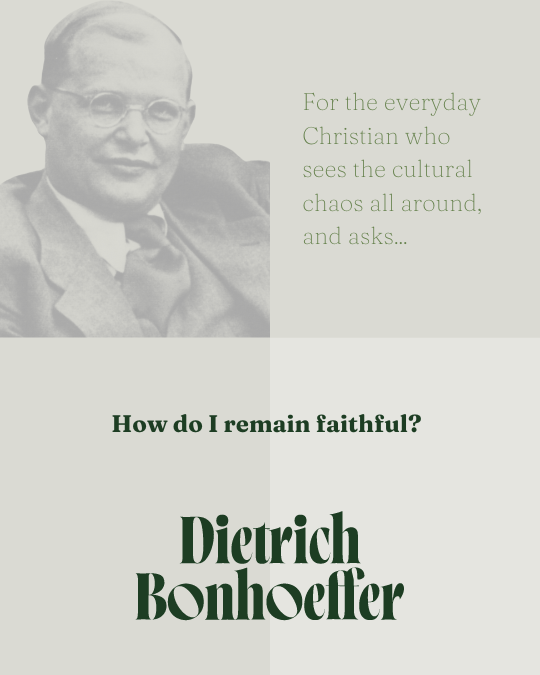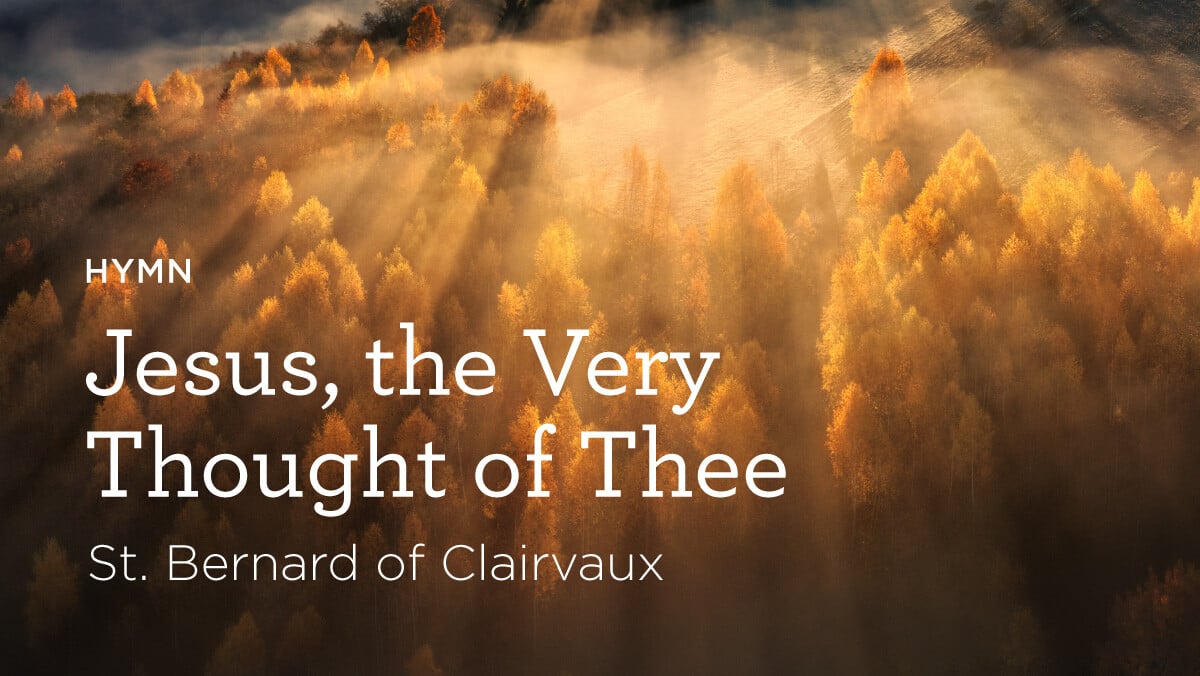
Written by Bonhoeffer Scholar and BibleMesh Institute Research Fellow: Dr. Brant Himes.
On May 26, 1996, the United States Holocaust Museum honored Dietrich Bonhoeffer as a Righteous Gentile who helped save Jews during the Nazi regime.
In October 1998, the Yad Vashem holocaust memorial in Jerusalem denied the request to name Bonhoeffer as Righteous Among the Nations.
What are we to make of these two opposing decisions? Did Bonhoeffer personally risk his life for the Jews in Germany, or not? And if not (as Yad Vashem argues), should contemporary Jews and others bother caring about a Christian pastor and theologian who got himself wrapped up in assassination attempts against Hitler?
As we navigate these questions, we’ll discover Bonhoeffer’s continuing call and legacy is to advocate for victims of hatred, injustice, and violence—including victims of racism and antisemitism.
Bonhoeffer and the Jewish Question
In April 1933, just weeks after Hitler came to power and started imposing anti-Jewish laws, Bonhoeffer wrote an essay, “The Church and the Jewish Question.” This essay is challenging for two reasons. On the one hand, we see an early Bonhoeffer repeating traditional German Lutheran theology that draws a sharp distinction between the realms of church and state, trusting the state to make decisions regarding law and order. Lutheran theology also had anti-Jewish stereotypes that emphasized the role of Jews in killing Jesus, and called for their conversion to Christianity as their only hope of reconciliation. This is one of the specific reasons Yad Vashem cites in their explanation of denying Bonhoeffer the status of Righteous Among the Nations.1
On the other hand, Bonhoeffer’s essay is challenging because it starts to frame a case for when the church should get involved in opposing the state. Specifically, Bonhoeffer writes that “the church has an unconditional obligation toward the victims of any societal order, even if they do not belong to the Christian community.”2 He then describes three possibilities for action that the church can take concerning the state, including caring for and binding up the wounds of the victims of the state, and also jamming a spoke in the wheel of the state itself.3 This argument foreshadows Bonhoeffer’s own involvement in the conspiracy to assassinate Hitler during the war.
So, we see in this essay two things happening. First, we see Bonhoeffer as a theologian and pastor of his historical context: uncritically a traditional Lutheran, writing to a Lutheran pastoral audience, summarizing some of the key assumptions of the faith.
But we also see Bonhoeffer beginning to push things further. He is unwilling to just let the state do whatever it wants to the Jewish people—whether they are part of the Christian church or not. He also begins to outline a compelling argument for when the church needs to break out of its comfort zone and actually confront the state through direct political action.
This was a radical stance at the time, and Bonhoeffer’s colleagues wouldn’t hear much of it. It took more than a year for the church to put out a statement separating themselves from the Nazi-led Reich Church. For Bonhoeffer, this was much too slow.

Bonhoeffer and the Life of Discipleship.
Dive into Bonhoeffer’s life and writings with our expert-led 8-unit course, and grow in your own life of discipleship.
The Unfortunate Complexity of History
Any historical understanding requires a willingness to engage in nuance. History is complex; theological writings are complex; lives are complex.
We often want our heroes to be flawless, to never have to develop, and to see clearly what we see with the benefit of hindsight.
The U.S. Holocaust Museum admitted as much during the ceremony to honor Bonhoeffer as a Righteous Gentile. They wrote: “Although repudiating Nazism, Bonhoeffer also expressed the anti-Jewish bias of centuries-old Christian teaching.”4 This was the reality of his theological and historical situation.
Bonhoeffer can’t be defined or understood by what he wrote in one essay in 1933. Just as he can’t be defined or understood based on any one episode or writing. That’s what makes his life so compelling—he’s human, like us, with flaws and also with learning, development, passion, and decisive action.
Bonhoeffer did in fact have incredible foresight in seeing the importance of the Jewish question as a central part of the church’s faithful witness. He would live this through to the end, when he was arrested for his part in the successful smuggling of 14 Jews into Switzerland.5
And then we have his legacy. Students and scholars of Bonhoeffer have applied his life and thought in the service of the struggle against hatred, racism, and antisemitism. Bonhoeffer’s Christ-centered theology demands that Christians step into the gap for any and all who suffer, and proclaim the love and grace that God has for all people.6
Whether or not Bonhoeffer deserves the designation as Righteous Among the Nations is up for Yad Vashem to decide. They have their standards, definitions, and processes, and if in their eyes Bonhoeffer doesn’t meet those, then he doesn’t merit the designation. Plenty of scholars disagree, but that’s not the point.
Instead, any attempt to learn about Bonhoeffer is an invitation to discover how his call as a Christian demanded care for the victims of oppression and violence—including and especially the Jewish people.
History has shown us that Bonhoeffer’s legacy is worth engaging because his life and thought challenges us to live a life that is faithful to God’s calling.
Further Reading
Rubenstein, Richard L. “Was Dietrich Bonhoeffer a ‘Righteous Gentile’?” International Journal on World Peace 17, no. 2 (June 2000): 33-46.
Zerner, Ruth. “Church, State, and the ‘Jewish Question.’” In The Cambridge Companion to Dietrich Bonhoeffer, ed. John W. de Gruchy, 190–205. Cambridge: Cambridge University Press, 1999.
Footnotes:
1 https://www.yadvashem.org/press-release/02-october-2003-10-25.html
2 Dietrich Bonhoeffer, “The Church and the Jewish Question,” in Berlin: 1932–1933, vol. 12 of Dietrich Bonhoeffer Works, edited by Larry L. Rasmussen. Minneapolis: Fortress, 2009, 365.
3 Bonhoeffer, “The Church and the Jewish Question,” 365–66.
4 As quoted in Ruther Zerner, “Church, State, and the ‘Jewish Question’” in The Cambridge Companion to Dietrich Bonhoeffer, ed. John W. de Gruchy. Cambridge: Cambridge University Press, 1999, 195.
5 Zerner outlines a “chronicle of compassion and courage” of Bonhoeffer’s actions for the Nazi targets of persecution. See “Church, State, and the “Jewish Question,’” 197–8.
6 See, for example, Jennifer McBride, The Church for the World: A Theology of Public Witness. Oxford: Oxford University Press, 2012.











 English (US) ·
English (US) ·